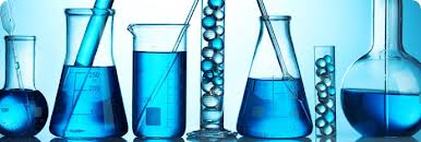
Science KS3 Curriculum:
Pupils entering Key Stage 3 are actually entering into the foundation years before they begin their work on the nationally recognised qualifications. As such, the course is heavily structured towards the development of the skills required to access science at higher levels as well as those that are transferable to everyday life. The curriculum content of year 7 & 8 covers a wide spectrum of areas that are designed to provide all students with the opportunity to study the basics of biology (e.g. cells and life systems), chemistry (e.g. elements and reactions) and physics (electricity and forces).
KS4 Overview:
At KS4 there are a variety of routes that are available;Triple Science (also known as separate sciences) is designed to stretch the most able and enthusiastic of emerging scientists and enable them to pursue science and science related subjects at post-16.
The triple science students study the same areas of science as those studying the Combined Sciences but they also study additional units which allow for an increased depth and breadth of scientific knowledge. The combined science aspects of the course are designed to provide students with the skills that are required to succeed with science and life including investigative work, use of evidence, literacy and data analysis. Demonstrating a good standard of understanding the Additional Science is essential for those students studying double science and looking to study any science at A-Level. Both sciences cover a range of Biological, Chemical and Physical topics.
BTEC Level 2 is a qualification that is highly vocational in nature. The course has the scope to be equivalent to 1 GCSE, 2 GCSEs or 4GCSEs depending on the number of units completed. Pupils will, in general, be completing the 2 GCSE route. The course has one examinations as well as continual assessment whereby pupils are graded on the quality of assignments that are completed throughout the entire course. The units that the pupils study are a combination of compulsory units and units elected by the students.
Core & Applied Science (Runs in some schools in year 9s); The Core course is the same as mentioned previously. The Applied course is a vocational GCSE course and has been introduced, along with the Core, to replace the outgoing BTEC due to the removal of the optional BTEC units. The Applied course covers a very wide array of topics including materials and their properties, forensics, communications and health. The course provides a good route of progression onto the Level 3 BTEC in Forensic Science at post-16 which in turn is an excellent alternative route to A-Levels for students wishing to study science at university.
Pupils entering Key Stage 3 are actually entering into the foundation years before they begin their work on the nationally recognised qualifications. As such, the course is heavily structured towards the development of the skills required to access science at higher levels as well as those that are transferable to everyday life. The curriculum content of year 7 & 8 covers a wide spectrum of areas that are designed to provide all students with the opportunity to study the basics of biology (e.g. cells and life systems), chemistry (e.g. elements and reactions) and physics (electricity and forces).
KS4 Overview:
At KS4 there are a variety of routes that are available;Triple Science (also known as separate sciences) is designed to stretch the most able and enthusiastic of emerging scientists and enable them to pursue science and science related subjects at post-16.
The triple science students study the same areas of science as those studying the Combined Sciences but they also study additional units which allow for an increased depth and breadth of scientific knowledge. The combined science aspects of the course are designed to provide students with the skills that are required to succeed with science and life including investigative work, use of evidence, literacy and data analysis. Demonstrating a good standard of understanding the Additional Science is essential for those students studying double science and looking to study any science at A-Level. Both sciences cover a range of Biological, Chemical and Physical topics.
BTEC Level 2 is a qualification that is highly vocational in nature. The course has the scope to be equivalent to 1 GCSE, 2 GCSEs or 4GCSEs depending on the number of units completed. Pupils will, in general, be completing the 2 GCSE route. The course has one examinations as well as continual assessment whereby pupils are graded on the quality of assignments that are completed throughout the entire course. The units that the pupils study are a combination of compulsory units and units elected by the students.
Core & Applied Science (Runs in some schools in year 9s); The Core course is the same as mentioned previously. The Applied course is a vocational GCSE course and has been introduced, along with the Core, to replace the outgoing BTEC due to the removal of the optional BTEC units. The Applied course covers a very wide array of topics including materials and their properties, forensics, communications and health. The course provides a good route of progression onto the Level 3 BTEC in Forensic Science at post-16 which in turn is an excellent alternative route to A-Levels for students wishing to study science at university.
